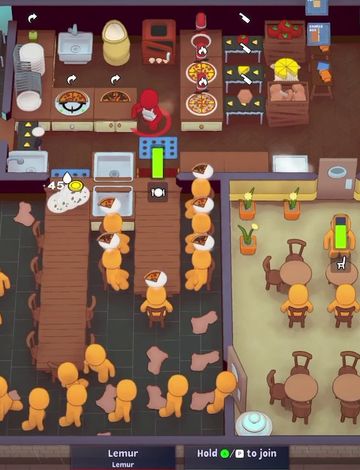PlateUp! invites players into a high-energy culinary adventure where every decision—from kitchen layout to dish selection—shapes your path to success. In fact, combining the fast-paced chaos of a bustling restaurant with rogue-lite progression, this game challenges you to balance strategic planning and split-second reflexes. With that in mind, in the following sections, we’ll explore how PlateUp! differentiates itself from genre favorites, delve into its core mechanics and presentation, and highlight why each run feels both fresh and rewarding. Whether you’re a solo chef chasing perfection or rallying friends for cooperative mayhem, this review will guide you through the strengths, quirks, and lasting appeal of PlateUp!.
Overall Impressions
PlateUp! blends rogue-lite progression with frantic kitchen action. Right away, I instantly felt the thrill of designing and running my own restaurant. Notably, it stands out from Overcooked by rewarding long-term growth. For many players, fans call it a mix of Overcooked and Rogue Legacy, and they’re right. Because of this, every run feels fresh and strategic. The procedurally generated restaurants keep me on my toes. Plus, I love that I can go all-in solo or rope my friends into chaos. Admittedly, some friends find it too stressful, choosing Elden Ring runs instead. Yet, that stress just makes victory taste sweeter.
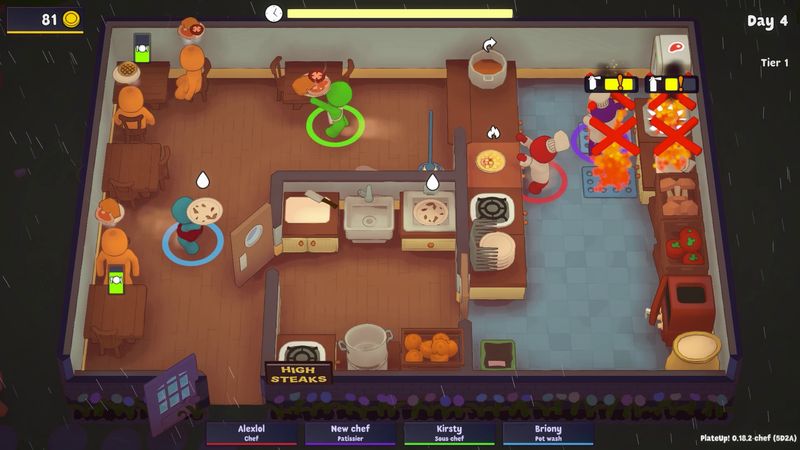
Gameplay Mechanics
PlateUp! nails the balance between controlled chaos and real strategy. Specifically, you chop, cook, serve, and clean while customers pour in. Every decision about kitchen layout matters. For example, do you place the sink next to prep stations? Should you automate your burger line first? You unlock new dishes and blueprints through each successful run. Although failure resets your restaurant, you keep your unlocks. Consequently, this loop drives me back for “one more run.”
This game’s kitchen design system feels impressively deep yet remains accessible to newcomers, while its procedural layouts demand on-the-fly planning and keep every playthrough fresh. In addition, the robust automation tools reward creative setups, and co-op gameplay introduces hilarious, frantic moments that enhance the overall experience. However, some automation items only unlock later in the campaign—by the time they become available, the game may already feel routine. Also, early runs can feel punishing until key upgrades are unlocked, creating a challenging learning curve that encourages players to strategize more efficiently as they progress.
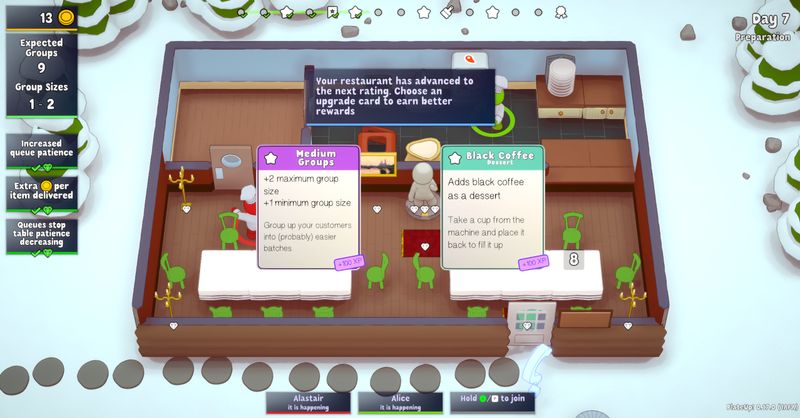
Story and Characters
PlateUp! doesn’t lean on a heavy story. Instead, you craft your own narrative through unlocks and restaurant themes. You choose avatars, each with a quirky style. Essentially, your “characters” are really your team—whether solo or with friends. Interestingly, the world-building shines through dish unlocks and modifiers. Thus, running a sushi bar one day and a burger joint the next feels like writing your own cookbook saga. Ultimately, it’s memorable purely through emergent stories—like the time my automated burger conveyor backfired and sent patties across the room.
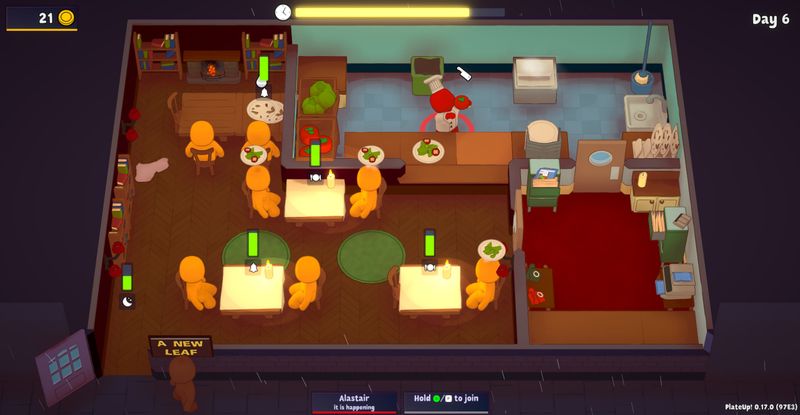
Visuals and Graphics
PlateUp! uses a clean, colorful aesthetic. Importantly, the art style stays clear even in chaos. I never struggle to spot raw ingredients or dirty dishes. Additionally, the pixel-art vibe feels modern, with smooth animations. Kitchen items pop in bright colors against simpler backgrounds. The UI feels intuitive. Menus flow logically, and tooltips guide new players. Overall, the look keeps the mood upbeat, even on your most frenzied run.
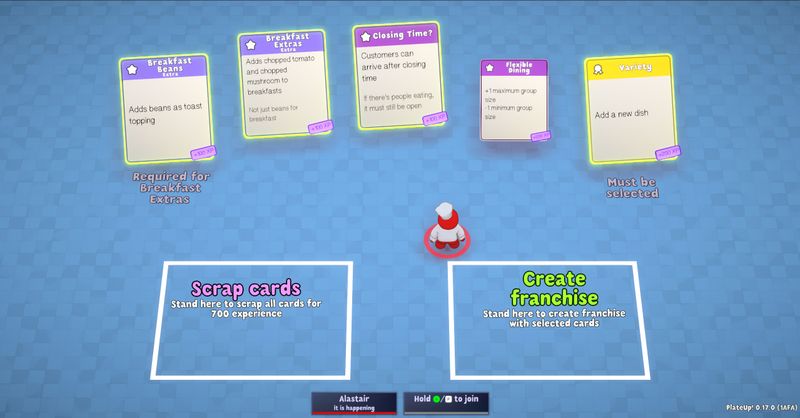
Sound and Music
The soundtrack blends light jazz and electronic beats. It keeps the energy high without stressing me out. Sound effects are crisp. I hear satisfying sizzles, chopping sounds, and service bells. There’s no voice acting, which fits the game’s minimalist storytelling. Instead, simple audio cues signal success or impending disaster. The music loops pleasantly and never grates, even after hours of play.
Difficulty and Replayability
PlateUp! scales its difficulty with your progress. Early runs teach you basic layouts and dish recipes. As you unlock new content, mods and special events shake up each session. I hit my sweet spot around level 10 unlocks, where choices really matter.
Replayability soars thanks to a permanent rogue-lite progression system that keeps each run meaningful, dozens of dishes and modifiers that encourage experimentation, and procedural level generation that ensures no two kitchens ever feel the same. Whether you prefer flying solo or teaming up with friends in co-op mode, the game rewards creative strategies and adapts to different playstyles. With so many unlockable elements and randomized layouts, every session feels fresh and motivates players to come back for more.
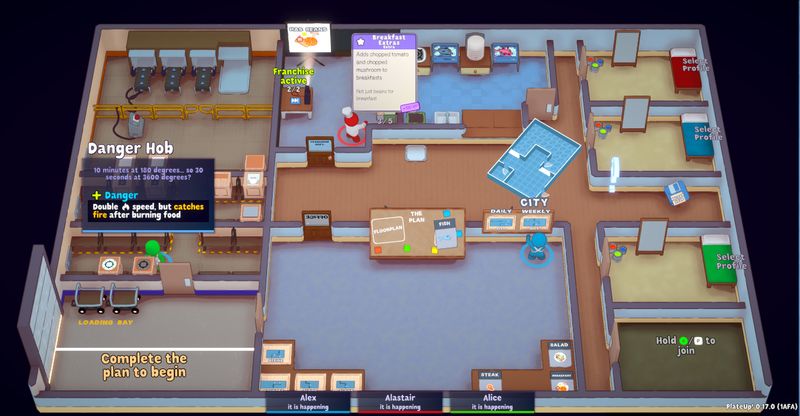
Honestly, I’ve lost count of hours chasing that perfect run. Still, when I fail, I earn new blueprints and boosts. That carrot-on-a-stick design keeps me hooked. On Steam, players praise its “chaotic, creative, addictive” mix. In fact, one friend jokes, “My buddies can’t handle the heat, so I get all the glory!” I have to say, I agree entirely.
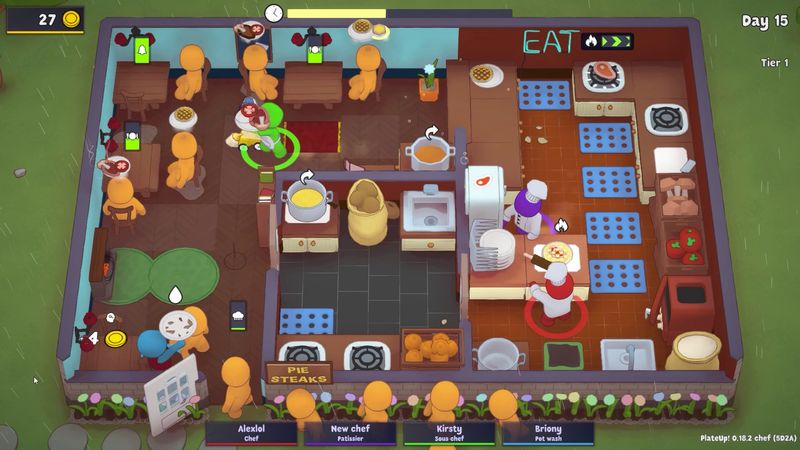
Trivia and Behind the Scenes
PlateUp! started as a small jam project by developer It’s Happening and quickly evolved into a polished experience thanks to Yogscast Games’ backing, which helped refine the UI and add co-op functionality. The development team keeps players engaged by regularly sharing roadmaps on Discord, and future updates promise fresh dishes and more automation tools that continually expand gameplay options. With Steam “Very Positive” reviews highlighting its broad appeal—appealing equally to casual cooks and hardcore strategists—PlateUp! demonstrates a strong community following and ongoing support. By emphasizing transparency and responsiveness, the creators ensure that both solo chefs and co-op teams always have new content to look forward to, reinforcing PlateUp!’s lasting popularity and dynamic evolution.
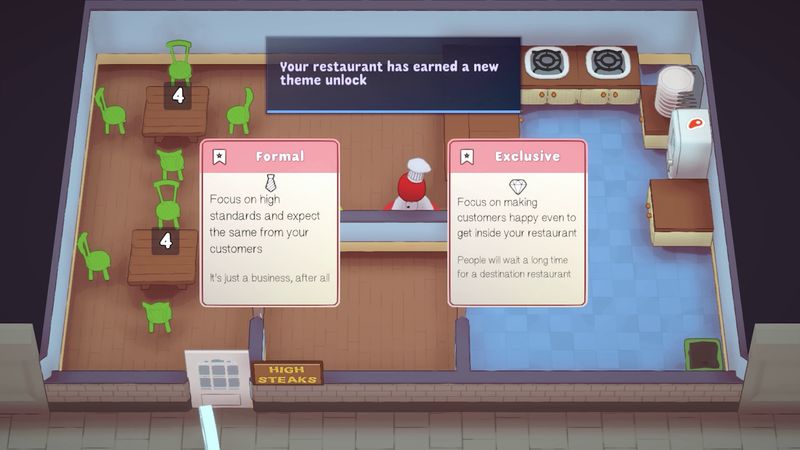
Comparison to Genre Peers
PlateUp! stands out from genre peers by emphasizing long-term progression and strategic depth over the one-off mayhem of Overcooked, rewarding players who invest time to build efficient kitchens. Unlike Cook, Serve, Delicious!, PlateUp! highlights cooperative gameplay and robust kitchen design tools that encourage creativity and teamwork. While Rogue Legacy and PlateUp! both utilize permadeath-style loops, PlateUp! zeroes in on meticulously planning kitchen layouts rather than character traits, making each run feel refreshingly focused. In my experience, PlateUp! delivers a more calculated approach than Overcooked’s frantic sessions and offers a more immediate, hands-on experience than many simulation titles—ensuring that both seasoned strategists and casual cooks find something compelling.
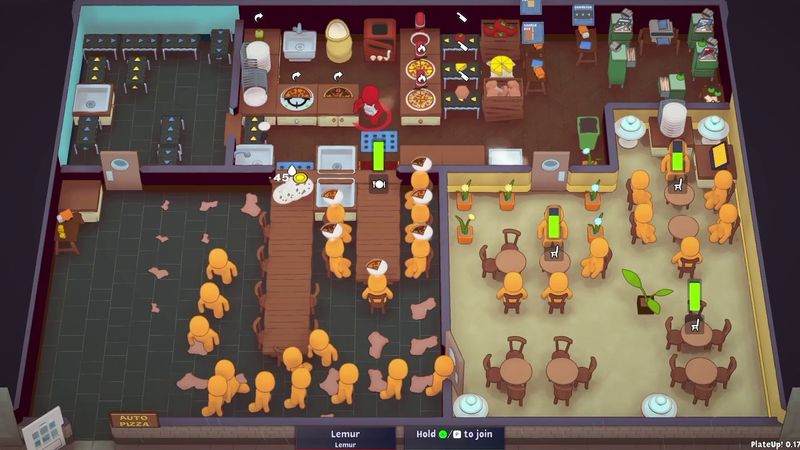
Final Thoughts
PlateUp! is a hidden gem for co-op fans and solo chefs alike. It captures the joy of building a restaurant empire in bite-sized, replayable runs. The mix of rogue-lite mechanics and kitchen management feels fresh and engaging. Visuals stay clear under pressure, and the soundtrack keeps you moving. Difficulty scales well, and unlocks fuel my desire to keep playing. Whether shouting at friends or mastering an automated fast-food line solo, I always have fun. Four or five stars wouldn’t do it justice. I hand out PlateUp! a solid five-star rating.
Score: ★★★★★ (5/5)

